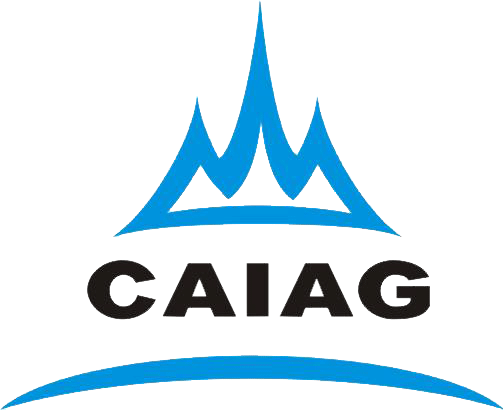German Federal President Steinmeier visits CAIAG research in Central Asia
During his trip to Central Asia, the German President also met with representatives of the Central Asian Institute for Applied Geosciences CAIAG.
As part of his trip to Central Asia, German Federal President Frank-Walter Steinmeier also met with representatives of the Central Asian Institute for Applied Geosciences (CAIAG) and visited one of its study areas in the Tian Shan Mountains. On Friday, 23 June, the German Federal President informed himself about the work of CAIAG, which is run by the Kyrgyz government together with the Helmholtz Centre Potsdam - German Research Centre for Geosciences. Of particular interest were questions of landscape change and water supply in Central Asia, which is increasingly threatened by climate change. Steinmeier highlighted the importance of the region as a focal point for many issues related to climate change and its consequences, as well as for protection against natural hazards.

Germany’s Federal President Frank-Walter Steinmeier (r.) and CAIAG Co-Director Oliver Bens (l.) during their joint visit to the Tian Shan Mountains. (Photo: German Federal Government/Denzel)

Germany’s Federal President Frank-Walter Steinmeier (m.) and CAIAG Co-Director Oliver Bens (l.) on a walk during their joint visit to the Tian Shan Mountains. (Photo: German Federal Government/Denzel)
CAIAG Co-Director Oliver Bens from the GFZ underlined: "We are dealing here with numerous ecological challenges that are already affecting not only Central Asia, but many regions of the world and also us in Germany." Bens cited as examples changes in the water cycle and water quality, glacier retreat and glacial lake outburst floods, land and soil degradation as well as a decline in functional biodiversity and geohazards such as flooding, mudslides and landslides.
Central Asia is a key region for research in several respects. In addition to the aspects of climate change and its consequences, this region is characterised by the highest and largest mountains in the world, strong geodynamic and tectonic activity with recurring, also severe earthquakes and with an importance for the global climate.
The geo-resource water is in focus, as both drinking water supply and agriculture, which is often based on irrigation, as well as electricity production with hydropower depend on it. The large glaciers in the Tien-Shan, Alai, Altai and Pamir mountains feed the supply systems downstream. Due to this great importance, the GFZ has established a Global Change Observatory in Central Asia, to which the CAIAG also contributes with its monitoring stations and study areas.
Background to the CAIAG
The CAIAG is thematically oriented towards central challenges of the entire Central Asia region in the fields of Earth and environmental sciences, global change and natural hazards. It is based in Bishkek, the capital of Kyrgyzstan. The institute is an important partner institution for the German Research Centre for Geosciences GFZ, among others for the Global Change Observatory Central Asia, which has already been in operation for many years, an initiative thematically broadly anchored in the GFZ in various disciplines (including geodesy, remote sensing, geophysics, geodynamics, hydrology, geomorphology, climate and landscape development). It is also involved in various cooperation projects with international partners and operates the Sensor Data Storage System (SDSS), in which data from around 560 measuring stations in Central Asia are freely available to interested users. The CAIAG makes important contributions to research and development projects, to knowledge transfer as well as to training programmes and science diplomacy in Central Asia. It is headed by the two directors Bolot Moldobekov (Kyrgyzstan) and Oliver Bens (GFZ, Germany).
Further information:
Homepage CAIAG (English): http://www.caiag.kg/en/
Regional geo data provided at http://sdss.caiag.kg




